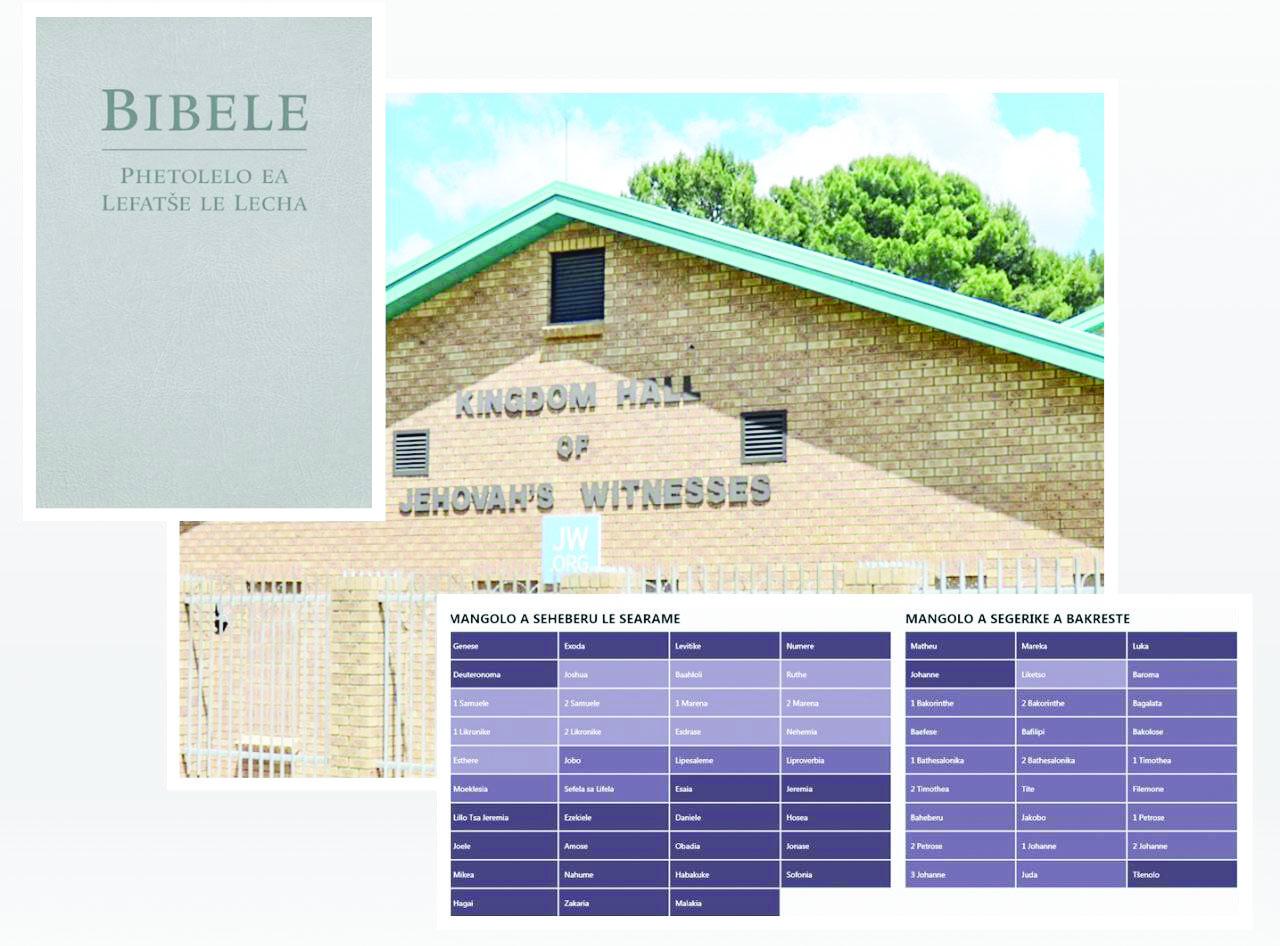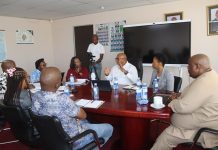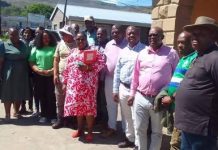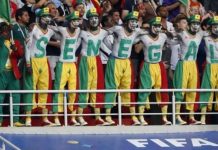Africa-Press – Lesotho. Jehovah’s Witnesses released two complete New World Translation of the Holy Scriptures in Sesotho (Lesotho orthography) and in Sesotho (South Africa orthography) in digital format on June 26.
This is the first time that Basotho people in South Africa will have a complete New World Translation Bible in their mother tongue. Those in Lesotho will take pride in a complete revised edition which is easy to read and understand.
The digital Bibles are now ready for use and free download on the official website of Jehovah’s Witnesses, www. jw. org and hard copies will be made available in December. An estimated 3.8 million people in South Africa and 1.8 million people in Lesotho speak Sesotho.
Speaking at the release, Kenneth Cook, a member of the World Headquarters of Jehovah’s Witnesses, said: “When the language is clear, people will more easily be moved to serve God from the heart and to make needed changes in their lives”.
Although the Sesotho spoken in Lesotho and South Africa is the same, the individual orthographies (the way of writing) are very different. Thus, two translations had to be made available so that both languages could be catered for while their original structure in written format was considered and respected.
The two Sesotho Bible releases are a result of close collaboration between the two translation teams for both languages. The work was accomplished in the wake of many challenges experienced during the translation period in the last two years because of lockdowns and Covid-19.
Commenting on how the old Bible made it difficult to understand, one translator said: “When using the old Bible, it felt like a different language was being used.
With this new Bible this problem is resolved because the translation is clear. Bible students and it’s avid readers alike are going to love it!” Khotso Pitso, the National Spokesperson for Jehovah’s Witnesses in Lesotho said, “The Bibles have come right on time.
Jehovah’s Witnesses who speak Sesotho will be able to use the new Bibles during our upcoming virtual Convention programme with the theme, ‘Pursue Peace!’ that will run from July to August worldwide. They will be able to follow the programme reading from a Bible with modern and simple language”.
In total, three Bibles were released on the day, the New World Translation of the Holy Scriptures in Sesotho (South Africa) and Ndebele for the first time in their respective languages and a complete revised New World Translation of the Holy Scriptures in Sesotho (Lesotho).
The Bible is the most widely translated and distributed book in history. Meanwhile, the European Court of Human Rights (ECHR) released a landmark judgment against Russia on June 15 for persecuting Jehovah’s Witnesses.
The ECHR declared that it was unlawful for Russia to ban Jehovah’s Witnesses in 2017. The Court also stated that it was illegal to ban the Witnesses’ printed publications and their official website, jw.
org. Russia was ordered to discontinue all pending criminal proceedings against Witnesses and to release all those in prison. Russia was also ordered to return all the confiscated properties or pay 59,617,458 euros ($63,684,978 U.S. ) compensation for the same (in pecuniary damages). Russia was also directed to pay the applicants a total of 3,447,250 euros ($3,682,445 U. S. ) in non-pecuniary damages.
Some significant Facts The judgment addresses 20 cases from 2010 to 2019, involving over 1,400 applicants—individual Witnesses and legal entities. Throughout the judgment, the ECHR systematically refutes Russia’s baseless claims that the Witnesses’ actions, beliefs, publications, and website are extremist.
For example, note the following selections from the judgment: Actions: The ECHR stresses that the Russian courts “did not identify any word, deed or action by the applicants which would be motivated or tainted by violence, hatred or discrimination against others.
” JW. ORG: The Court determined that the content on jw.
org is not extremist and asserted that if the authorities objected to selected information on the website, they should have required the organization to remove only those sections they found offensive instead of banning the entire website.
For More News And Analysis About Lesotho Follow Africa-Press






